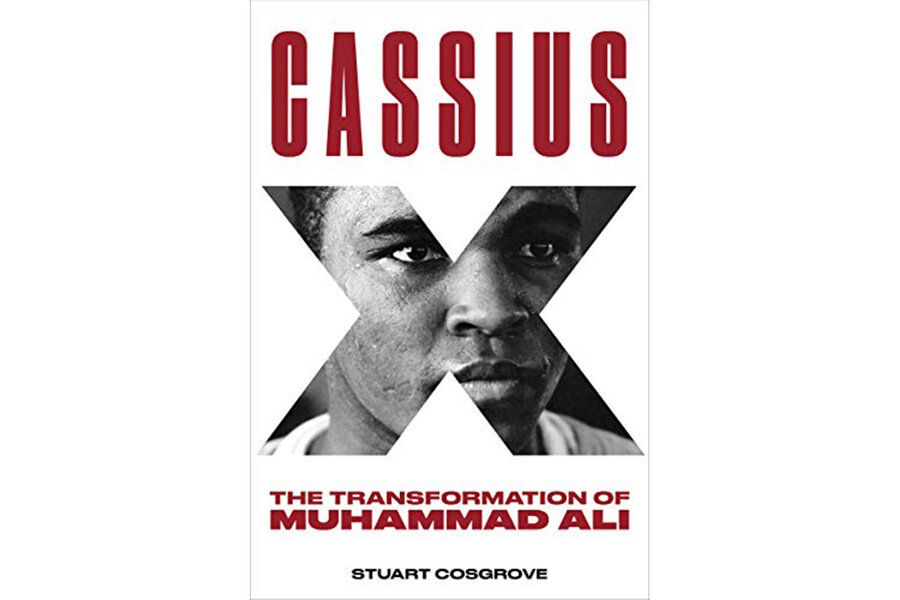Why Did Cassius Clay Turn Into Muhammad Ali?
Early Life as Cassius Clay
Cassius Marcellus Clay Jr. was born on January 17, 1942 in Louisville, Kentucky to Cassius Marcellus Clay Sr. and Odessa O’Grady Clay. As a young boy, Clay became interested in boxing after his bicycle was stolen and a police officer suggested he learn how to box. At age 12, Clay began training as an amateur boxer under the guidance of Joe E. Martin, a local trainer.
Clay developed into an accomplished amateur fighter, winning six Kentucky Golden Gloves titles and two national Golden Gloves championships. In 1959, at age 18, Clay won the U.S. title as a light heavyweight. The following year, Clay represented the U.S. at the 1960 Summer Olympics in Rome and won the light heavyweight gold medal. With an Olympic gold medal under his belt, Clay began his professional boxing career shortly after returning from Rome.
Citations:
https://www.britannica.com/biography/Muhammad-Ali-boxer
https://en.wikipedia.org/wiki/Muhammad_Ali
Conversion to Islam
Cassius Clay first met civil rights activist Malcolm X in 1962. In 1961, Clay was first introduced to the teachings of the Nation of Islam by another boxer named Sam Saxon. Over the next few years, Malcolm X served as a mentor to Clay and educated him about the Nation of Islam. On March 6, 1964, Clay officially converted to Islam and joined the Nation of Islam. Shortly after, he changed his name from Cassius Clay to Cassius X, signifying his rejection of his “slave name” and connection to slavery. Later that year in May, he settled on the name Muhammad Ali.
According to a Slate article, when Ali announced his conversion to the public in 1964, he was met with heavy criticism and mockery. The World Boxing Association even refused to recognize his new name at first. However, Ali stood firm in his religious beliefs despite the backlash.
Reasons for Conversion
For Cassius Clay, the conversion to Islam represented a spiritual awakening and a rejection of the racism he had experienced in America. He was inspired by civil rights activist Malcolm X and his teachings about black pride and empowerment through the Nation of Islam. As Clay later explained in a 1967 letter, he had become disillusioned with Christianity, feeling it was “a white man’s religion” that had been used to “enslave my people”.

Clay was first introduced to the Nation of Islam in 1961 and became more involved over the next few years. He was greatly influenced by Malcolm X, who served as a mentor and teacher. In his autobiography, Ali recounted that Malcolm X made him realize “how little I really knew about Islam, or my own people”. The more Ali learned, the more connected he felt to his African heritage and Islamic faith.
By 1964, Clay was ready to fully commit to the Nation of Islam by changing his name, which he considered his “slave name”. As he announced after defeating Sonny Liston, Cassius Clay was no more – Muhammad Ali had emerged. This bold act symbolized Ali’s spiritual awakening and his desire to inspire black Americans to reject assimilation and embrace their true cultural identity.
Changing His Name
After joining the Nation of Islam in 1964, Cassius Clay began the process of shedding the name he felt represented his family’s slave past and embracing a new identity.1 Clay considered his birth name a “slave name” and wanted a new name that reflected his new Islamic faith.2 In 1964, he first changed his name to Cassius X to represent his unknown African ancestral name, in line with the Nation of Islam’s practice of replacing slave names with an X. However, Elijah Muhammad, the leader of the Nation of Islam, gave Clay the name Muhammad Ali to further solidify his membership and allegiance to the Nation. For Ali, the new name represented his new identity as a Muslim and a free man, liberated from his oppressive past.
Initial Reaction
Muhammad Ali’s initial name change from Cassius Clay to Muhammad Ali in 1964 was met with controversy, largely due to Ali’s association with the Nation of Islam. The Nation of Islam, led by Elijah Muhammad, was viewed as a radical group by mainstream America in the 1960s. When Cassius Clay joined the Nation and changed his name, it was seen as an embracement of the Nation’s polarizing views on race relations.
Changing his name was also viewed as unpatriotic by many, considering the civil rights movement occurring in America at the time. According to the SF Bay Area Television Archive [1], Ali stated “Cassius Clay was the name of the white slave master.” Rejecting his birth name was interpreted as a rejection of his American identity during a turbulent time in America’s history. There was resentment towards Ali’s name change from those who felt he was being ungrateful or anti-American.
Legal Battle Over Name Change
When Ali changed his name initially, authorities refused to acknowledge his new name. He was still called Cassius Clay in press conferences and boxing bouts. According to the Supreme Court summary on The Supreme Court decision that saved Muhammad Ali’s career, Ali was arrested for violating the Selective Service laws and his criminal trial paperwork all still referred to him as Cassius Clay.
Ali sued in court to legally change his name and finally succeeded in 1971 when the New York State Supreme Court ruled in his favor. The judge stated: “Religious freedom is one of the most sacred, jealously guarded liberties in the country.” This marked a major legal victory for Ali, allowing him to officially shed his former identity and cement his new name. After years of fighting, authorities and the public were finally forced to acknowledge him as Muhammad Ali.
Shift in Public Perception
When Cassius Clay first changed his name in 1964, it was met with controversy and criticism from the public and media. Many people saw it as unpatriotic during the Vietnam War era. Clay was stripped of his heavyweight title and his boxing license was suspended multiple times for refusing to be drafted into the military (Euronews, 2023). However, public perception began to shift as Ali stood firm in his principles. He stated, “Why should they ask me to put on a uniform and go 10,000 miles from home and drop bombs and bullets on Brown people in Vietnam while so-called Negro people in Louisville are treated like dogs?”
Over time, Muhammad Ali became widely respected for his activism and principles. His refusal to fight in Vietnam on religious and moral grounds paved the way for others to speak out. He was seen as a pioneer in the fight for civil rights and an inspiration to many. Though initially controversial, Ali’s name change came to symbolize freedom of religion, black pride, and social change. He demonstrated that identity is not static and gave confidence to others to embrace change. In the latter part of his career, Muhammad Ali was revered as an activist athlete who risked his livelihood for his beliefs. His legacy solidified him as one of the most influential sports figures in history.
Significance of the Change
Muhammad Ali’s decision to change his name represented a powerful act of defiance against white supremacy at the time. As Euronews notes, the 1960s saw the rise of the Black Power and civil rights movements, which emphasized racial pride and rejected notions that black people should conform to white American norms. By rejecting his “slave name” Clay and taking on the Islamic name Ali, he boldly affirmed his African heritage and identity.
Muhammad Ali inspired many other black Americans to connect with their roots and embrace meaningful African names. His stand against racial prejudice gave confidence to the growing Black Power movement and motivated more people to challenge white supremacist notions that blacks should abandon their cultural identities. As an iconic, world-famous figure, Muhammad Ali’s name change sent a powerful message about the importance of celebrating one’s heritage with pride and dignity.
Muhammad Ali’s Legacy
Muhammad Ali became a global icon who transformed perceptions of the Nation of Islam. Although controversial in his day, Ali inspired people around the world as a champion of civil rights and religious freedom. His refusal to serve in the Vietnam War on conscientious grounds cemented his status as a countercultural hero. Ali showed that the principles of the Nation of Islam could instill discipline and purpose, defying stereotypes. His humanitarian work enhanced global admiration for his principles and dedication to justice and peace. Ali demonstrated that athletes could be both principled and wildly popular. Decades after his boxing career ended, Muhammad Ali’s legacy as a groundbreaking civil rights activist and global humanitarian continues to inspire people around the world.
Conclusion
In summary, Cassius Clay changed his name to Muhammad Ali as a statement of his newfound faith in Islam and support for the civil rights movement. As a young boxer named Cassius Clay, he dominated the sport but faced discrimination as a Black athlete. His conversion to the Nation of Islam gave him a sense of racial pride and spiritual purpose. By changing his “slave name,” he asserted his freedom and independence. This bold act challenged the status quo in 1960s America and signified his commitment to social justice. Though initially controversial, Ali’s stand was ultimately vindicated. His name change came to represent his integrity and courage in fighting for his beliefs. The symbolic meaning behind Muhammad Ali’s name made him an icon of Black empowerment and a champion of civil rights.


